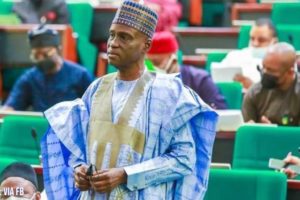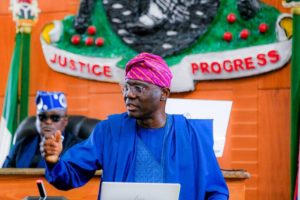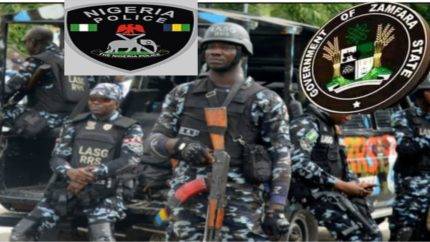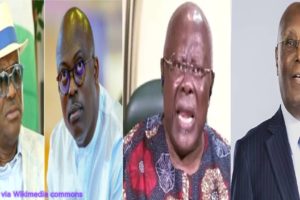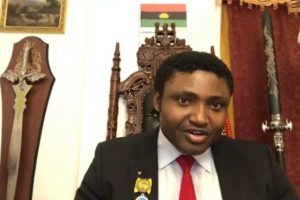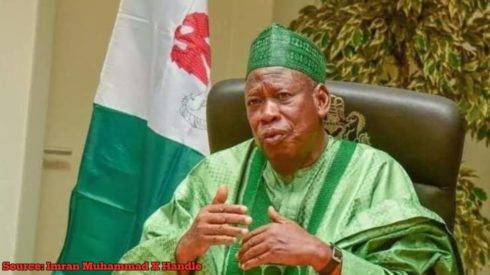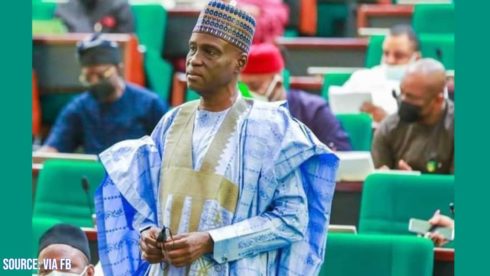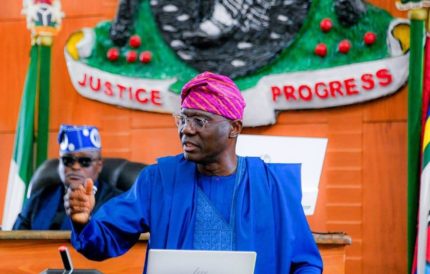Governor Ganduje’s speech at a prominent empowerment rally in Nnewi, Anambra, has ignited widespread curiosity and discussion within Nigeria’s political circles. His revelation regarding the alleged intentions of former President Shehu Shagari to endorse Alex Ekwueme as his successor before the military takeover has injected a fresh perspective into the country’s historical political landscape. This disclosure not only sheds light on the intricate dynamics of past leadership transitions but also prompts contemplation on how such revelations may influence current and future political trajectories in Nigeria.
The implications of Governor Ganduje’s remarks extend beyond mere historical reflection, stirring debates about the potential ramifications for contemporary Nigerian politics. This newfound insight into the past has sparked speculation about its relevance to present power struggles and alliances within the country. As stakeholders dissect the significance of Shagari’s purported intentions and the subsequent military intervention, they are left pondering the potential ripple effects on the ongoing political landscape, suggesting a deeper interplay between past events and current power dynamics in Nigeria.
Governor Ganduje’s Account of Shagari’s Intentions
In Governor Ganduje’s speech, he illuminates the intricate dynamics of political relationships between former leaders, specifically focusing on the camaraderie shared between Vice President Alex Ekwueme and President Shehu Shagari. Through nuanced observations, Governor Ganduje suggests that Shagari’s support for Ekwueme’s presidential ambitions was palpable, evident in subtle cues and gestures that conveyed a sense of endorsement. By delving into the realm of “body language,” Governor Ganduje offers a unique perspective on the unspoken alliances and alliances that shaped Nigeria’s political landscape during that era. This portrayal underscores the significance of regional influence, particularly from the South-East, and sheds light on how Ekwueme was perceived as a formidable contender for the presidency within the corridors of power.
Governor Ganduje’s narrative not only provides historical insight but also serves as a testament to the complexities of Nigerian politics. By highlighting the symbiotic relationship between Ekwueme and Shagari, he brings attention to the intricate web of alliances and aspirations that defined the era. This narrative strategy not only engages the audience by humanizing historical figures but also invites reflection on the enduring impact of past political dynamics on contemporary Nigerian society. Through meticulous analysis and interpretation, Governor Ganduje’s speech not only preserves the legacy of these leaders but also contributes to a deeper understanding of the socio-political fabric of Nigeria, garnering attention and appreciation from audiences seeking nuanced perspectives on the country’s rich history.
Governor Ganduje’s Emphasis on Political Alignment
Governor Ganduje’s recent remarks underscore the importance of political alignment and engagement with the ruling party, particularly for the South-East region. His advocacy for embracing the All Progressives Congress (APC) as a means to achieve political freedom and influence suggests a strategic approach to mitigating marginalization and fostering active participation in national politics. By aligning with the central government, Governor Ganduje implies that the South-East can secure a stronger voice in decision-making processes and gain access to resources necessary for development.
Furthermore, Governor Ganduje’s message aligns with broader efforts by the APC to expand its support base and strengthen its political dominance nationwide. By encouraging regional alignment with the ruling party, he aims to bolster the APC’s presence in the South-East while simultaneously advancing the party’s agenda of unity and inclusivity. This approach not only seeks to address regional disparities but also underscores the significance of collective political action in shaping Nigeria’s socio-political landscape. As such, Governor Ganduje’s remarks serve as a strategic call to action for political stakeholders in the South-East to prioritize alignment with the APC as a pathway to greater political empowerment and representation on the national stage.
Governor Ganduje’s Revelation: Implications for Contemporary Politics
Governor Ganduje’s disclosure regarding Shagari’s alleged backing of Ekwueme sparks a reevaluation of Nigeria’s political narrative and its enduring implications on present-day dynamics. This revelation not only casts light on the historical interplay of power within Nigerian politics but also prompts a critical examination of the South-East region’s historical role and its implications for contemporary political positioning. As stakeholders assess the historical significance of the South-East’s influence within the ruling party, it prompts a deeper reflection on the region’s quest for equitable representation on the national stage.
Furthermore, Governor Ganduje’s revelation has the potential to reshape strategic calculations among political actors, particularly in the South-East, as they chart their course in an ever-evolving political landscape. It introduces a new dimension to the discourse surrounding alliances and electoral strategies, prompting a reassessment of historical precedents and their relevance in shaping current political dynamics. As such, Governor Ganduje’s remarks serve as a catalyst for introspection and strategic recalibration among political stakeholders, underscoring the intricate interplay between history, power, and contemporary political imperatives in Nigeria.
Governor Ganduje’s Assessment of Mobilization Efforts
Governor Ganduje’s recognition of Senator Ifeanyi Ubah’s mobilization endeavors and the remarkable attendance at the empowerment rally illuminate the pivotal role of grassroots organizing and political outreach. This acknowledgment not only underscores the significance of direct engagement with local communities but also emphasizes the effectiveness of targeted mobilization efforts in garnering support for political initiatives. By commending Senator Ubah’s involvement, Governor Ganduje implicitly acknowledges the importance of collaboration and coalition-building among political actors to drive meaningful change and consolidate influence within the South-East region.
The overwhelming turnout at the event signifies a palpable surge in interest and participation in mainstream politics across the South-East, indicating a shifting dynamic in the region’s political landscape. It suggests a growing awareness and involvement of citizens in shaping their political future, with Senator Ubah emerging as a prominent figure in channeling this newfound enthusiasm into tangible action. As grassroots mobilization continues to gain traction, political actors like Senator Ubah are poised to play an increasingly influential role in shaping the socio-political fabric of the region, paving the way for a more engaged and participatory democratic process.
Governor Ganduje Unveils Intricate Political Dynamics: Shagari’s Influence on Ekwueme and Nigeria’s Political Landscape
Governor Ganduje’s recent disclosure regarding Shehu Shagari’s purported backing of Alex Ekwueme’s presidential ambitions provides a significant window into the intricate historical tapestry of Nigerian politics. This revelation underscores the nuanced interplay of alliances and affiliations within the political landscape of Nigeria, shedding light on the complex relationships that have shaped the nation’s trajectory. By delving into the historical backdrop of political maneuvering and coalition-building, Governor Ganduje’s remarks serve as a crucial reminder of the enduring impact of past decisions on contemporary political strategies and aspirations.
Furthermore, Governor Ganduje’s emphasis on the significance of political alignment and engagement with the ruling party carries profound implications, particularly for stakeholders in the South-East region. As Nigeria navigates through evolving socio-political dynamics, the relevance of Ganduje’s insights resonates deeply with political actors seeking to navigate the intricate web of power dynamics. The ongoing discussions surrounding Ganduje’s revelations are poised to fuel debates and influence decision-making processes, shaping the direction of political discourse and action not only in the immediate future but also in the long term.
Table of Contents
Discover more from OGM News NG
Subscribe to get the latest posts sent to your email.

